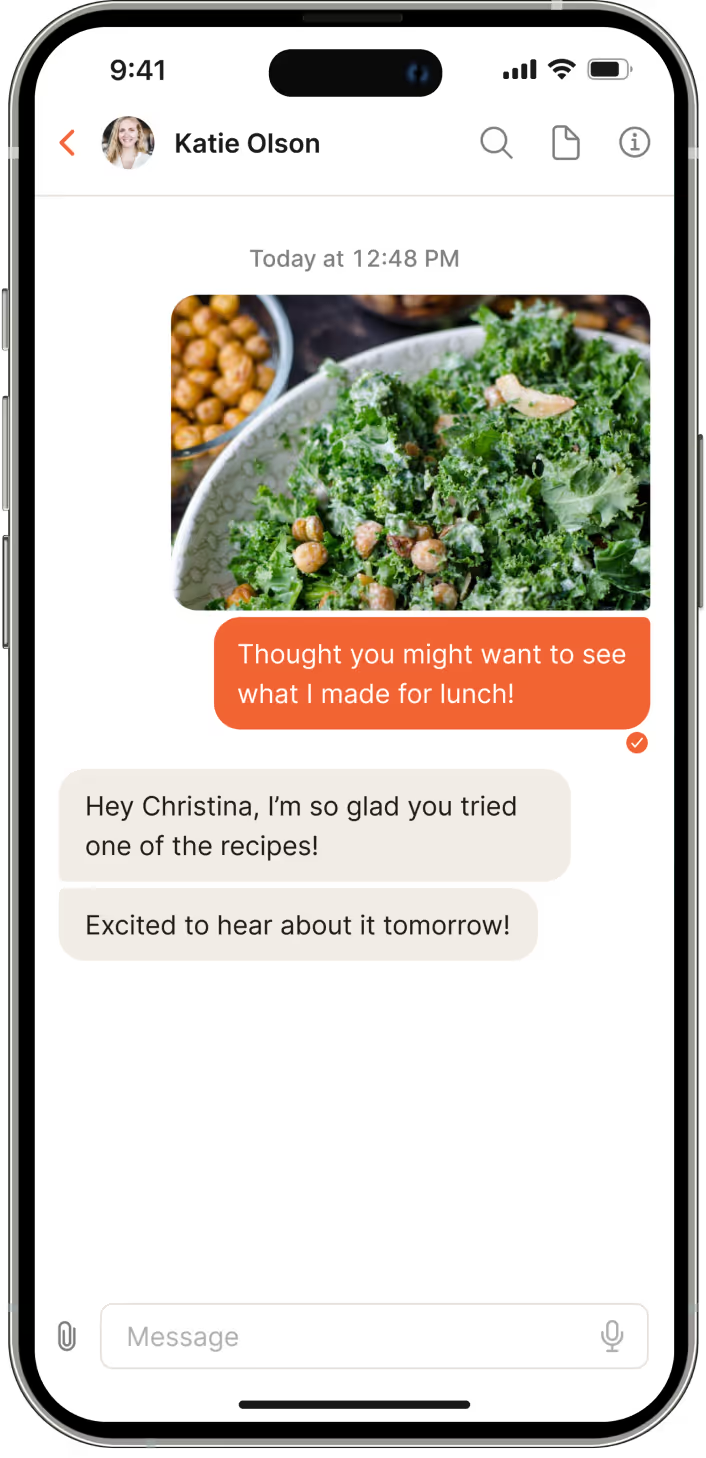Find a Binge Eating Dietitian Covered by Insurance
94% of Nourish patients pay $0 out of pocket!


Our team of dietitians can support all areas of your health
Our team of nutritionists are skilled in numerous specialties. Whether your needs revolve around sports, weight loss, a chronic illness, or navigating a pregnancy, our professionals are prepared to provide the right nutritional guidance.









Personalized nutrition planning
We offer virtual one-on-one sessions with dietitians to discuss preventative actions that can be taken to address your health concerns. We educate, assess lifestyle changes, help plan your nutrition, and support our clients toward long-lasting success using personalized nutrition counseling.
Convenient, virtual appointments
Receive the highest quality care wherever you are most comfortable. You get access to your dietitian virtually anytime, anywhere. No more driving to appointments. No more waiting around.
Avoiding future complications
The payoff you’ll see for adjusting your lifestyle with nutrition counseling will be tremendous for your health. You’re less likely to suffer from a heart condition, kidney failure, and other serious conditions with the proper discipline and determination that we help provide.
We’ve got answers.
Still deciding if we’re right for you? These frequently asked questions may help.

How can I find a <Name> dietitian who accepts my insurance?
Nourish has <Name> dietitians in-network with major insurers like Blue Cross Blue Shield, United Healthcare, Aetna and Cigna. 95% of Nourish patients pay $0 when using insurance.
Are video visits with a dietitian online for <Name> covered by insurance?
Check your coverage to see if Nourish accepts your insurance plan.
What to expect during a visit with a dietitian that specializes in <Name>?
During your first appointment with a dietitian, you can expect to review your medical history, eating habits, and lifestyle. You’ll get to know your dietitian and you’ll have the opportunity to ask them any questions you have.
How can I find an online video visit with a dietitian that can help with <Name>?
Nourish offers completely virtual appointments that can help address <Name>.
How can I book a nutrition appointment online for <Name>?
Nourish offers completely virtual nutrition appointments and is covered by insurance. You can find a dietitian that’s right for you and filter by condition.
How can I see a dietitian that can help with <Name>?
Nourish has dietitians that specialize in <Name> that can help. Nourish uses evidence-based, personalized nutrition therapy so you feel your best.
A registered dietitian can also help with the following related <Name> conditions:
What is Binge Eating Disorder?
Binge eating disorder (BED) is caused by a complex combination of genetic, psychological and cultural factors. Family history, long term dieting, and a disrupted relationship with food may increase the risk of binge eating disorder. Binge eating disorder sufferers often struggle with co-occurring mood and anxiety disorders, have experienced some kind of trauma, or struggle to navigate developmental milestones and life changes.
Binge Eating Disorder Signs and Symptoms
Binge eating disorder is often associated with symptoms of depression. There are several signs that someone might be battling with BED, including insisting on eating alone, overeating when not hungry, or eating until uncomfortably full.
Episodes of binge eating are usually followed by feelings of guilt or shame, and often lead to more serious health complications. Full list of symptoms:
- Consuming an unusually large amount of food in a relatively short time
- Feeling out of control with food
- Eating more quickly than usual
- Consuming large quantities of food while not feeling hungry
- Eating until feeling uncomfortable and overly full
- Having feelings of sadness, guilt, or disgust after eating
- Hiding or being secretive about eating behaviors
- Feeling embarrassed about the amount of food consumed
- Experiencing sadness with regard to body or weight
- Feeling depressed, ashamed, guilty or disgusted about your eating
Causes of Binge Eating Disorder
Binge eating disorder (BED) is caused by a complex combination of genetic, psychological and cultural factors. Family history, long term dieting, and a disrupted relationship with food may increase the risk of binge eating disorder. Binge eating disorder sufferers often struggle with co-occurring mood and anxiety disorders, have experienced some kind of trauma, or struggle to navigate developmental milestones and life changes.
The larger cultural narrative around dieting, binge eating and obesity is a prominent factor influencing the development of binge eating disorder. This rhetoric fosters shame and embarrassment for individuals struggling with BED, many of whom are chronic dieters without weight loss success.
Binge Eating Disorder Health Risks
There are serious health risks associated with binge eating disorder (BED), including: Cardiovascular disease, Type II diabetes, Metabolic Syndrome as well as Sleep Disorders, GI Disorders, Pain Disorders, Menstrual Dysfunction and Pregnancy Complications. That’s why it’s important to recognize that BED is a mental health illness, not a matter of trying to exercise more self-control.
Binge Eating Disorder Treatment
The specialized binge eating disorder treatment team at Nourish will work with you to understand biological, psychological and social contributors to your illness.
First and foremost, intervention at a behavioral level is imperative to stop disordered eating. Secondly, your treatment team will seek to understand the psychological issues that contribute to your disordered eating behavior.
In addition to the psychological contributors to the illness, it is important to identify any co-occurring illnesses you may have, such as depression, anxiety, trauma or substance abuse. At Nourish, we believe in treating the illness, not just the resulting weight gain. By focusing first on remedying the disordered eating, we work with our patients to find solutions to the underlying issues first and the weight second.




%20Logo%20-%20vector69.com.svg)


















.avif)






